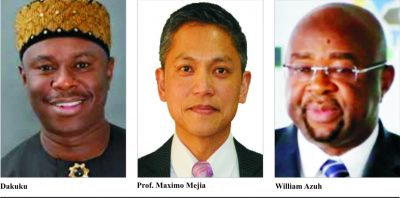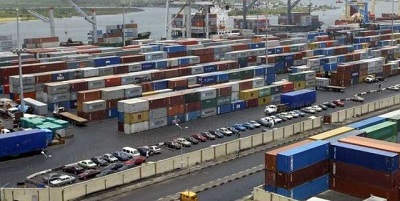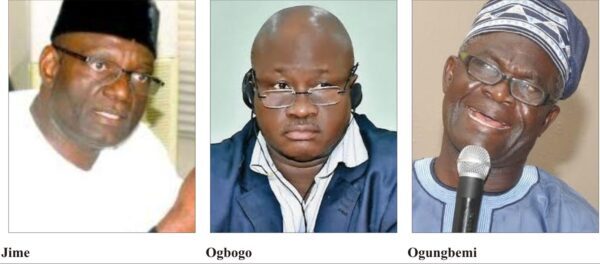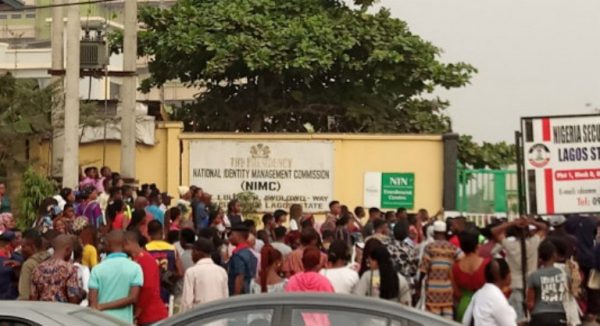Does Nigeria Need A National Maritime Transport Policy?
Transportation plays a key role in the economic and social development of any nation. A well functioning and integrated transport system stimulates national development, enhances the standard of living of citizens, allows markets to operate by enabling the seamless movement of goods and people; provides vital links between spatially separated facilities and provides access to employment, health, education and services. Such system also alleviates regional inequality and fosters national integration. It increases access to markets and links local, regional, national and international markets; and promotes economic development by increasing access to labour and physical resources thus facilitating the realization of a country’s comparative advantages.
For Nigeria, the proposed National Transport Policy covers different transport modes (road, rail, maritime, air and waterways) and the overall efficiency and effectiveness of the transport system depends on the development of these modes and their interfacing/integration. However, the massive potentials in the nation’s maritime sector led to calls for a specialized maritime transport policy. This point was reechoed by the Director General of the Nigerian Maritime Administration and Safety Agency (NIMASA) Dr. Dakuku Peterside last week.
Dr. Peterside who was speaking during the opening ceremony of a three-day workshop on national maritime policy formulation in Lagos, said “Maritime is international and Nigeria cannot isolate herself from the rest of the world by doing things the local way, which tends to draw the nation back and scare away investors. It is high time we fortified our sector with global compliant laws and business-friendly regulations.”
“Nigeria doesn’t only have a long coast but also one of the longest inland waterways; in addition of six active port complexes. All these, coupled with our population, make us the biggest economy in Africa. Therefore, we need a sustainable maritime policy that would guide the coordination of maritime activities as we strive to advance Nigeria’s global maritime goal”
The NIMASA boss argued that the interwoven roles of the multiple players and stakeholders in the maritime industry such as; the Nigerian Ports Authority (NPA), Nigerian Maritime Administration and Safety Agency (NIMASA), National Inland Waterways Authority (NIWA), etc., also underlines the need to have a common vision, position, and a shared dream represented in a common guiding document.
“We have a national transport policy which captures an idea, vision and the roles of land transportation, pipeline as mode of transportation, rail, water, transportation and air transportation but we don’t have a stand-alone document for the maritime sub-sector, now the current national transport policy cannot be all encompassing of what is needed on the maritime transport sub sector.
“We have identified that there is a gap and we sought help from the International Maritime Organization (IMO) which got us professionals from the Word Maritime University (WMU) to help us articulate a national maritime policy. The workshop is on how nations can articulate and formulate their own national maritime policy. We are here to learn the basic skills on how to formulate and articulate that important document.”
“A workable maritime transport policy of any nation should be stakeholders driven. Therefore all associated stakeholders and professionals in the sector need to participate in the articulation and formulation of this policy” the NIMASA boss added.
Meanwhile, one of the speakers from the World Maritime University (WMU), the Director of PhD Program and Head of Maritime Law and Policy, Prof. Maximo Mejia told MMS Plus that Nigeria already had sufficient maritime legislation to enable the sector thrive.
Prof. Maximo who had presented a paper on “the maritime policy development process”, maintained that Nigeria’s biggest challenge in the development of maritime was the nation’s inability to define how it wants the maritime industry to contribute to the nation’s economy and what areas need to be prioritized.
He argued that these clear-cut strategies should define the nation’s National Transport Policy, while the country could make adjustments to expand the scope of the policy as the nation’s maritime activities increases.
“Nigeria is a country with enormous potentials for maritime development. It can capitalize on several aspects of maritime as well as the oil and gas sector. However, the nation already has very solid policies and legislations. It has a very comprehensive Merchant Shipping Act of 2007 as well as the Act that created NIMASA in 2007. The first question to ask is what the nation wants from shipping, the nation has to decide what role the maritime industry would play in the nation’s economy and how it can propel the Nigerian economy. Once you frame the narrative from that angle, then you come up with the list of issues that should be addressed by the National Maritime Policy”, Prof. Maximo said.
“Does Nigerian want to promote ownership of ships by Nigerians? Or promote Nigeria as a flag of registry. This isn’t just about the numbers because there are practical economic implications as the registrations mean more fees and payment of annual tonnage as taxes. There is also the area of providing employment via seafaring. This can provide job opportunities for a lot of Nigerian youth; hence the policy should be influenced from the area of education and training. Ship building could also be another area for exploring. Nigeria has to define its plans for the maritime sector” Prof Maximo stated.
On his part, the IMO Secretary General, Mr. Kitack Lim, who was represented at the event by the IMO Head, Africa Section, Technical Cooperation Division, Mr. William Azuh, stated that promotion and development of national policies would guide planning, decision making and relevant legislative actions which are important governance practice of many governments, including Nigeria.
The IMO Secretary General promised to support Nigeria as the nation carves out its National Maritime Transport policy.
“We will support NIMASA in developing a sustainable maritime transport system reflecting and balancing the interests of stakeholders with a carefully devised and executed maritime transport policy, which is crucial in serving as a fundamental guidance document to provide a long-term sustainable vision for the future of the Nigerian maritime sector”, Lim said.
Nevertheless, the fundamental goal of the Nigeria’s National Transport Policy is to develop an adequate, safe, environmentally sound, efficient and affordable integrated transport system within the framework of a progressive and competitive market economy.
According to the Draft of the National Transport Policy 2010, an “adequate transport system” means that available transport infrastructure and services meet the needs of all Nigerians for access to the market, place of employment and to basic social services. The transport system will serve as an instrument for social, political and economic unification; strengthening the operation of markets, facilitating production and resource development, and promoting relationships with the outside world.
On maritime, the National Transport Policy aims “to correct the anomaly existing and ensure that Nigerians are fully in control of the contrary’s wet and dry cargo business, government will: facilitate full indigenous participation in the carriage of cargoes including the lifting of crude petroleum; promote human capacity development for the manning of maritime vessels by Nigerians; put in place monetary and fiscal policies that adequately favour the shipping companies.”
Whilst the government has already taken steps to create an enabling environment for indigenous private shipping companies to acquire vessels via the Cabotage Act and made a special provision for the shipping industry in the context of domestic credits and foreign exchange; the problem with policies in Nigeria lie in the implementation.
A new National Maritime Transport policy should focus on maritime transportation and the benefits could be enormous but would the implementation of the policy not become burdened by the ever present challenge in implementation?
As the NIMASA boss puts it, “If you are talking about safety, you cannot isolate it from the minimum standard of safety in the maritime sector. If you are talking about the inter-connectivity of the maritime sector, there are many things you are going be addressing that cannot be captured in document that deals with the entire transport policy.”
One of the major problems of Nigeria’s maritime industry has been poor policy implementation. This, coupled with inconsistent administrators, lack of skilled manpower, corruption, etc., resulted to failure in actualizing the enormous potentials available in our maritime sector. Can the development of a National Maritime Transport Policy lead to a turnaround in the fortunes of the nation’s blue economy?








